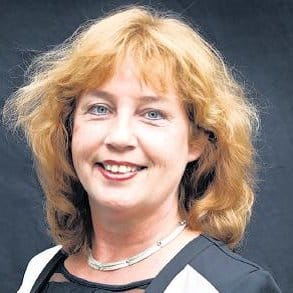 June 13, at 16.00 Ina Horlings will be inaugurated as prof. Socio-Spatial Planning at the University of Groningen. Ina Horlings is co-coordinator of the MSCA ITN project SUSPLACE. On behalf on of all the partners and Early Stage Researchers we congratulate her with this challenging position and good luck with her inaugural lecture titled: Transformative Planning: enabling resourceful communities. Below an abstract of her inaugural lecture:
June 13, at 16.00 Ina Horlings will be inaugurated as prof. Socio-Spatial Planning at the University of Groningen. Ina Horlings is co-coordinator of the MSCA ITN project SUSPLACE. On behalf on of all the partners and Early Stage Researchers we congratulate her with this challenging position and good luck with her inaugural lecture titled: Transformative Planning: enabling resourceful communities. Below an abstract of her inaugural lecture:
“I will elaborate on two questions during my speech: 1) What is the aim of socio-spatial planning? And: 2) Why should citizens, engage in spatial transformation?
The history of spatial planning shows a shift in values from a rationalist approach, to collaborative and communicative approaches and complexity planning. Understanding society doesn’t provide a direct answer to the normative issue what kind of places ‘we’ want in the future. The ‘we’ is becoming all the more relevant in the ‘do-it-yourself democracy’ or the ‘participative society’, where citizens initiatives and collectives want to take matters in their own hand.
The aim of a transformative socio-spatial planning is to enable resourceful communities in spaces, co-producing ‘better’ places. Resourcefulness refers to the capacity of a community to change the way they use their resources. This place- and practice based approach contributes to community resilience and fosters socio-spatial change through collective action.
A key condition for resourcefulness is the co-production between social, economic and governmental actors. Co-production shifts the balance of power, responsibility and resources to individuals and collectives, engaged in shaping their own places. This is not a simple performance: it is a dance between collective intentions and emergence. This requires a value-based perspective, being community-sensitive and imaginative, and the skills to mediate between varied opinions.
In our ‘fluid’ society people are dealing with uncertainty in a rapidly changing world, while they have to build their own narratives. Social navigation offers a key concept to understand the practices and tactics of people in situations in motion. My research agenda is a ‘three-leaf clover’ and includes the analysis of 1) values in place 2) place-shaping practices and 3) new institutional arrangements.”

